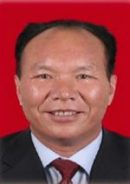 Name
Name
Che Dalha (Qi Zalha)
Current status
Governor of the TAR
Born
1958
Relevance to Tibet
Most senior Tibetan leader in Tibet Autonomous Region. Member of the 19th Central Committee.
 Name
Name
Che Dalha (Qi Zalha)
Current status
Governor of the TAR
Born
1958
Relevance to Tibet
Most senior Tibetan leader in Tibet Autonomous Region. Member of the 19th Central Committee.
Pronunciation: Chay Dalla
Born: estimated 1958 (age 58 on appointment), in Yunnan
Education: No information available.
Career: A former mayor of Lhasa and Vice Secretary of the TAR.
Prospects: No Tibetan has ever held the post of Party Secretary of TAR.
Relevance to Tibet: One of the most senior Tibetan leaders in Tibet. One of the only two Tibetan members of the 204-person 19th Central Committee
Che Dalha’s appointment as Governor of the TAR was announced on 15 January 2017. He previously served as Vice Secretary of the TAR, and was Mayor of Lhasa since November 2011. He is a Tibetan born in Yunnan.
In The Diplomat on 19 January 2017, Tsering Chonzom Bhutia wrote: “an analyst who predicted Che Dalha’s elevation much earlier in a closed door conference last year, confided that if the rumors about Che Dalha’s appointment materialized, it would signify a major change. The analyst added that the key question is what Che Dalha would bring to the chair position that may set a precedent for future strengthening of this role — and perhaps set the stage for a future Tibetan party secretary of TAR. In the Chinese news report announcing his appointment, there is only one statement by Che Dalha himself, in which he says, “I am faced with a tough task and huge responsibility.” He then promises to “study and work hard” in the light of “great expectations” from President Xi Jinping and the central government toward “Tibet’s reform and development.”
According to an International Campaign for Tibet report from 2011, “Prior to November 2010, Che Dalha’s entire career had been spent in Dechen (Chinese: Diqing) Tibetan Autonomous Prefecture (TAP) in Yunnan Province, part of the Tibetan region of Kham. Che Dalha was head of the Dechen TAP government when the Dalai Lama’s Special Envoys visited the region in 2003, and is likely therefore to be aware of the Dalai Lama’s aspirations for the Tibetan people. According to a source close to ICT with strong family ties to the area, Che Dalha is well-regarded in Dechen for his successes in overseeing rapid economic development in the region while also remaining an advocate for the promotion of the Tibetan language and other facets of Tibetan culture.
It could be speculated that the relative social and political calm in Dechen TAP marked Che Dalha out as a capable and politically reliable Tibetan official whose skills could be utilized in the more challenging political climate of Lhasa. However, the same source who noted Che Dalha is well-regarded in Dechen also notes that he has been through many years of training in Beijing, and states that he is extremely unlikely to take Tibetans’ concerns into special consideration just because he himself is Tibetan.
Che Dalha was first appointed to a position in the TAR in November 2010 when he was installed as head of the TAR United Front Work Department (UFWD) – an influential organization within the Party with offices at every level of government in the TAR that is broadly responsible for instilling ideological orthodoxy among Party and government workers. Nothing in his previous work experience suggests he was known as an enforcer of Party discipline, while the shortness of his tenure at the UFWD further suggests the post was used as a brief stepping stone for acclimatizing himself to Lhasa’s political environment before assuming the post of Party Secretary.”
Che Dalha has travelled overseas: in April 2016 he addressed a University symposium in Mexico City about the current situation in Tibet, where supporters of Tibet asked questions about the situation in Tibet. See https://youtu.be/d4Z2_nUu31g (video in Spanish)
In October 2017 he became a member of the 19th Central Committee, along with his predecessor Lobsang Gyaltsen: the only two Tibetan full members.